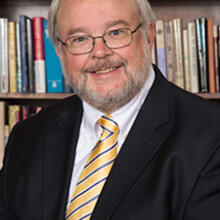At the end of a year of political chaos and Congressional dysfunction, something remarkable happened. Washington did its job. The year 2015 brought the tearful resignation of a speaker, a bombastic Republican frontrunner and a socialist challenger to the Clinton coronation. But another surprise was that Republican and Democratic leaders negotiated and passed and the president signed major budget and tax legislation. There was no shutdown, less drama and more dialogue, less brinkmanship and more leadership.
Could it be the so-called Francis factor? In September, Pope Francis told Congress, “You are called to defend and preserve the dignity of your fellow citizens in the tireless and demanding pursuit of the common good.” On Capitol Hill, I found leaders challenged by the pope’s call to see politics as a vocation. Clearly, John Boehner’s decision to leave the speakership and Paul Ryan’s reluctant decision to accept it brought different dynamics and a willingness to work together.
The Christmas miracle was that reasonable compromise prevailed over partisan combat and ideological stalemate. The expected extension of business tax breaks for powerful interests was matched by the extension of tax credits for poor working families. Bipartisan education and transportation bills were passed and signed. Congress funded the federal government without paralyzing policy riders often demanded by partisan warriors.
This outbreak of legislative sanity contrasted with the exploitation of legitimate fear and economic frustration for extreme policies by leading Republican presidential candidates. Donald Trump tweeted, defended and doubled down on his unconstitutional call to deny access to the United States because of a person’s religion. He extended his call to demonize and deport undocumented immigrants to now disqualify any Muslim from coming to our country, simply because of his or her faith. Speaker Ryan, breaking his no-comment rule on the campaign, later said the Trump proposal on Muslims “is not what this party stands for, and, more importantly, it’s not what this country stands for.” In fact, we protect American values by practicing them, including religious freedom and welcoming refugees, in difficult moments.
In contrast to the angry campaign, Speaker Ryan in a major speech at the Library of Congress offered predictable partisan and ideological points, but added: “We are not here to be someone but to do something—to serve our country. We believe in the American Idea: The condition of your birth should not determine the outcome of your life. And we want to do our part to pass on that idea to the next generation. We do not see politics as a popularity contest. To us, it is a calling.”
President Obama at his year-end press conference took a political victory lap and defended his sometimes tone-deaf response to terror but also commended the bipartisan agreement. He said: “There’s still a lot more that Congress can do to promote job growth and increase wages in this country. I still want to work with Congress— both Democrats and Republicans—to reform our criminal justice system.”
President Obama, Speaker Ryan and other leaders welcomed and expressed respect for Pope Francis. The pope’s New Year’s peace message outlines an agenda that his Washington admirers could work on together. Francis called for “specific and courageous gestures of concern for the most vulnerable…prisoners, migrants, the unemployed and the infirm.” He also called for addressing wages, working conditions and discrimination against women in the workplace; praised “the search for new ways to confront climate change and to protect the earth”; and warned against undermining “the fundamental and inalienable right to life of the unborn.”
In this New Year’s message, Pope Francis warned against “destructive cynicism” and “the globalization of indifference.” Both are terrible temptations in this election year. Francis calls for an “attitude of mutual responsibility” requiring us “to act together in solidarity…to demonstrate concern for the more vulnerable of our brothers and sisters and for the protection of the common good.” This is not the usual political path in Washington or on the campaign trail, but it offers a better way forward for our nation in this New Year. John Carr








